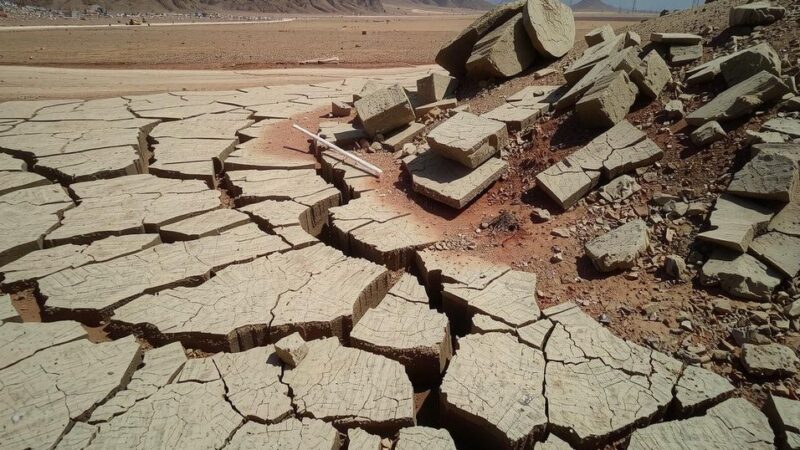The Democratic Republic of the Congo is facing a critical humanitarian crisis with 25 million affected individuals amid ongoing conflicts. The number of displaced persons has surged, exacerbating food insecurity and health emergencies like Mpox, which has led to thousands of cases and deaths this year. The UN highlights severe underfunding of humanitarian efforts, while military instability poses additional challenges for health authorities.
The Democratic Republic of the Congo (DRC) is grappling with a severe humanitarian crisis, with approximately 25 million individuals affected. This crisis has persisted due to ongoing conflicts in the mineral-rich eastern region, leading to escalated violence, mass displacements, and a range of health emergencies. Dr. Adelheid Marschang, the Senior Emergency Officer at the World Health Organization (WHO), emphasized that the DRC now faces the highest number of individuals needing humanitarian aid globally, with nearly 7.4 million people displaced, particularly since the significant military actions by the separatist M23 movement commenced in 2022. The WHO has reported alarming statistics regarding food insecurity, noting that around 40 percent of the population, which translates to 40.8 million individuals, faces serious food shortages. Of this group, 15.7 million are experiencing severe food insecurity, leading to increased risks of malnutrition and related health issues. Dr. Marschang warned that without immediate intervention, over one million children could suffer from acute malnutrition. The DRC is also contending with outbreaks of various infectious diseases, including cholera, measles, meningitis, and Mpox. Since the beginning of 2023, the DRC has recorded approximately 20,000 Mpox cases, resulting in over 1,000 deaths, predominantly affecting children. Of particular concern is a new strain of Mpox noted in South Kivu, which poses heightened risks in overcrowded camps near Goma, where military activities have impeded health response efforts. The health crisis unfolds against a backdrop of deteriorating security and inadequate funding for humanitarian efforts. The UN reports that only 16 percent of the Humanitarian Response Plan for 2024 is currently funded, with the WHO seeking $30 million to address pressing needs through the end of the year. The situation is aggravated by the recent withdrawal of the UN Stabilization Mission in DRC (MONUSCO), which raises concerns about increased violence and potential wider regional conflict due to the ongoing rebellion by the M23.
In the context of the DRC, ongoing conflicts have forced millions into displacement, creating a critical humanitarian crisis. The region is characterized by violence, mass displacement of people, and significant health issues due to neglect and underfunding. The WHO has highlighted the severe food insecurity affecting a substantial portion of the population, coupled with outbreaks of infectious diseases like Mpox, which threatens public health, particularly among vulnerable children. The recent withdrawal of international support from MONUSCO adds to the urgency of the situation, as security deteriorates further amidst rising militia activities.
The situation in the Democratic Republic of the Congo represents a profound humanitarian crisis, marked by pervasive violence, mass displacements, and a troubling public health emergency, particularly with regard to Mpox and food insecurity. Urgent action and adequate funding are crucial to address the dire needs of the affected populations. The interplay of military instability and health crises underscores the complexity of the challenges facing the DRC, necessitating comprehensive international support and intervention.
Original Source: news.un.org







